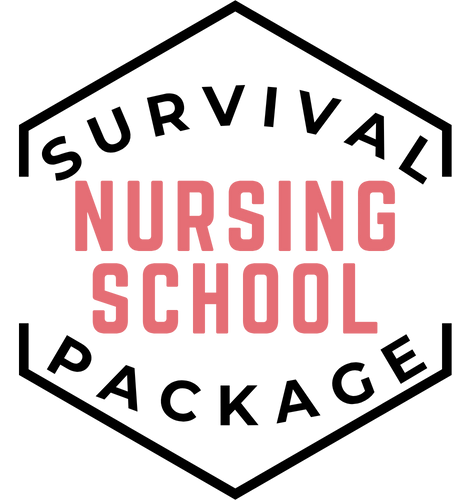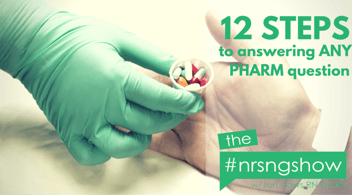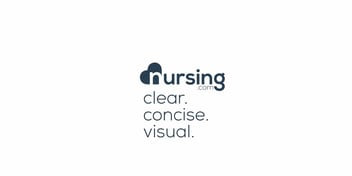The Ultimate Guide to Nursing Pharmacology: Mastering Medication Knowledge

Pharmacology is a cornerstone of nursing education and practice. Understanding medications, their actions, interactions, and side effects is crucial for ensuring patient safety and delivering high-quality care. This guide aims to provide nursing students with essential tips and strategies to master pharmacology effectively.
The Importance of Pharmacology in Nursing
Pharmacology is not just about memorizing drug names and their uses; it’s about understanding how drugs work, their effects on the human body, and how they interact with other medications. Nurses must be knowledgeable about pharmacology to administer medications safely, recognize potential side effects, and provide patient education.
Enhancing Patient Safety
One of the primary reasons pharmacology is vital in nursing is patient safety. Administering the wrong medication or dosage can have serious, even fatal, consequences. By understanding pharmacology, nurses can minimize medication errors and ensure that patients receive the correct treatment.
Improving Patient Outcomes
A solid understanding of pharmacology allows nurses to anticipate how patients will respond to medications. This knowledge helps in monitoring for therapeutic effects and adverse reactions, leading to improved patient outcomes. Additionally, nurses can educate patients about their medications, which promotes adherence to treatment plans and better health outcomes.
Building Professional Competence
Pharmacology knowledge enhances a nurse’s professional competence. It enables nurses to participate in interdisciplinary teams effectively, contribute to patient care plans, and advocate for their patients. This competence is essential for career advancement and professional development.

Strategies for Mastering Nursing Pharmacology
Mastering pharmacology can be daunting due to the vast amount of information that needs to be learned. However, with the right strategies, nursing students can conquer this challenging subject.
Using the SOCK Method
The SOCK method is a proven strategy for learning pharmacology. SOCK stands for Summary, Organize, Comprehend, and Know. This method helps students break down complex information into manageable chunks, making it easier to understand and remember.
Creating Drug Cards
Creating drug cards is another effective way to master pharmacology. Drug cards allow you to consolidate important information about each medication in a portable and easy-to-reference format. Include details such as drug name, classification, mechanism of action, therapeutic uses, dosage, side effects, and nursing considerations.
Practice with NCLEX-Style Questions
Practicing NCLEX-style questions is an excellent way to reinforce pharmacology knowledge. These questions simulate the types of questions you’ll encounter on the NCLEX exam and help you apply your knowledge in a practical context. Review the rationales for both correct and incorrect answers to deepen your understanding.
Resources for Studying Pharmacology
Several resources can aid in your study of pharmacology. Utilizing a variety of tools and materials can enhance your learning experience and provide different perspectives on the subject matter. Another great resource is the NCLEX Flash Notes pdf NCLEX study notes.

Textbooks and Online Courses
Textbooks such as “Pharmacology and the Nursing Process” provide comprehensive coverage of pharmacology concepts. Additionally, online courses from reputable institutions can offer interactive and engaging ways to learn pharmacology. These courses often include video lectures, quizzes, and forums for discussion.
Flashcards and Mobile Apps
Flashcards are a classic and effective study tool for pharmacology. Many mobile apps offer pre-made flashcards or allow you to create your own. Apps like Quizlet and Anki are popular choices among nursing students. These tools are convenient for on-the-go studying and quick reviews.
Study Groups and Peer Learning
Joining a study group can provide support and motivation. Discussing pharmacology concepts with peers can help clarify difficult topics and reinforce learning. Teaching others is also a great way to solidify your understanding.
Conclusion
Mastering pharmacology is essential for nursing students to ensure patient safety, improve patient outcomes, and build professional competence. By employing effective strategies such as the SOCK method, creating drug cards, and practicing with NCLEX-style questions, students can develop a strong foundation in pharmacology. Utilizing a variety of resources, including textbooks, online courses, flashcards, and study groups, can further enhance learning. With dedication and the right approach, nursing students can conquer the challenges of pharmacology and excel in their nursing careers.
---


.png?width=50&height=50&name=stencil.amz%20(3).png)



